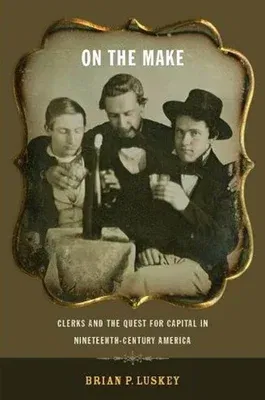Brian P Luskey
(Author)On the Make: Clerks and the Quest for Capital in Nineteenth-Century AmericaHardcover, 1 January 2010

Qty
1
Turbo
Ships in 2 - 3 days
In Stock
Free Delivery
Cash on Delivery
15 Days
Free Returns
Secure Checkout

Part of Series
American History and Culture
Print Length
287 pages
Language
English
Publisher
New York University Press
Date Published
1 Jan 2010
ISBN-10
0814752284
ISBN-13
9780814752289
Description
Product Details
Author:
Book Format:
Hardcover
Country of Origin:
US
Date Published:
1 January 2010
Dimensions:
22.86 x
15.75 x
2.29 cm
ISBN-10:
0814752284
ISBN-13:
9780814752289
Language:
English
Location:
New York
Pages:
287
Publisher:
Series:
Weight:
498.95 gm